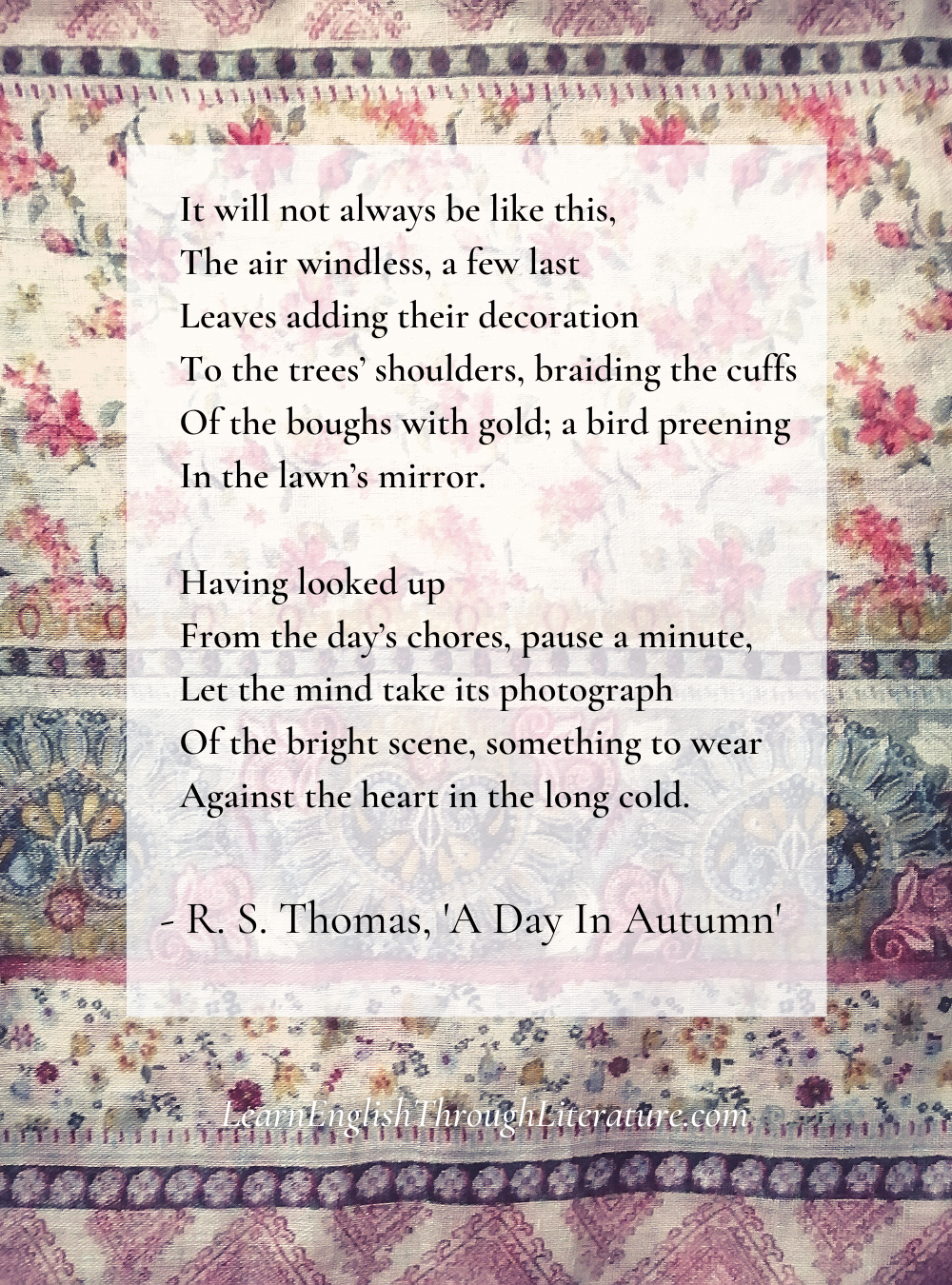🍁 Since autumn (or fall, as it is known in Canada and the USA) is my favourite season of the year, I have included several poems and literary passages in recent lessons on this topic. 🍂
I have yet another poem in autumn to share, one by the Welsh poet R. S. Thomas (1913-2000) called ‘A Day in Autumn’, and I hope you enjoy its reflectiveness as much as I do.
📜 ‘To everything there is a season’ is an old saying in English, derived from the King James Bible (1611), and this poem reminds us that there is so much to be gained from being fully aware and appreciative of whatever season or stage of life we are currently at.
Similarly, in the process of learning a language, there are moments when we may feel that achieving fluency will take an extended period. We dedicate months, and at times, years, to practising exercises, memorising vocabulary lists, and delving into obscure grammar rules.
Amidst all this repetitive work, we are making progress, and it is crucial to pause from time to time – much like the narrator of this poem – and reflect on how far we have come in our journey.
…
A DAY IN AUTUMN by R. S. Thomas
It will not always be like this,
The air windless, a few last
Leaves adding their decoration
To the trees’ shoulders, braiding the cuffs
Of the boughs with gold; a bird preeningIn the lawn’s mirror. Having looked up
From the day’s chores, pause a minute,
Let the mind take its photograph
Of the bright scene, something to wear
Against the heart in the long cold.
Even in this poem, you should be able now to identify some key points based on what we covered in past posts. Here is a quick overview of some of them here, with links to those lessons in case you would like to review them further:
📝 For how to stress English punctuation when reading aloud: check out Lesson #131.
📝 For possessive apostrophes (such as ‘trees” in the fourth line above): check Lesson #138 here.
📝 For understanding the differences between gerunds and participles (e.g. ‘having looked up’, first line of stanza 2): Lesson #127 in two parts.
📝 For an overview of several uses of the imperative tense in English, especially in poetry (consider, ‘pause a minute’, ‘Let the mind take its photograph’): Lesson #132 in two parts.
📝 For how memorising poetry can improve your spoken English, check out last week’s Lesson #142.
And finally, if you feel like discovering a few more reflective, autumnal-themed posts, why not check out
📝 Lessons #101 (where I share the famous opening lines of a poem by John Keats),
or 📝 Lesson #102 (where we looked at autumn fruits in George Eliot’s Middlemarch),
or even 📝 Lesson #105 (where I share a passage from Jane Austen’s Persuasion (1818)).
I hope you enjoy them!
Lastly, remember this: if you are reading from these lesson posts and understanding them, you have already learned a significant amount of knowledge. Maintain the momentum – you are making excellent progress!




